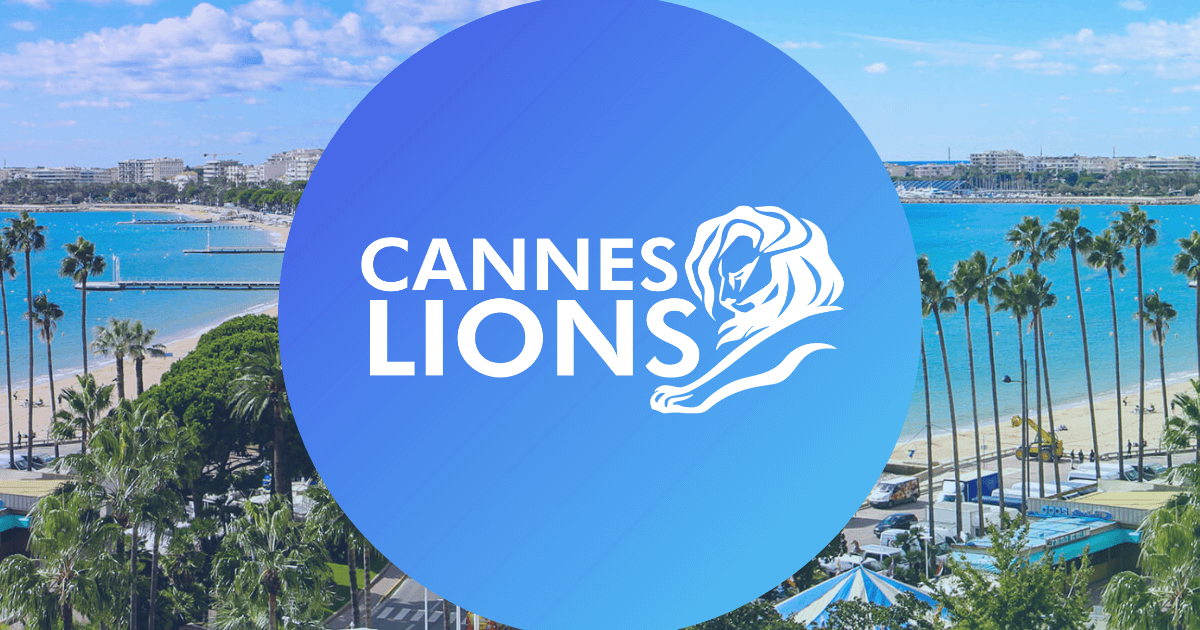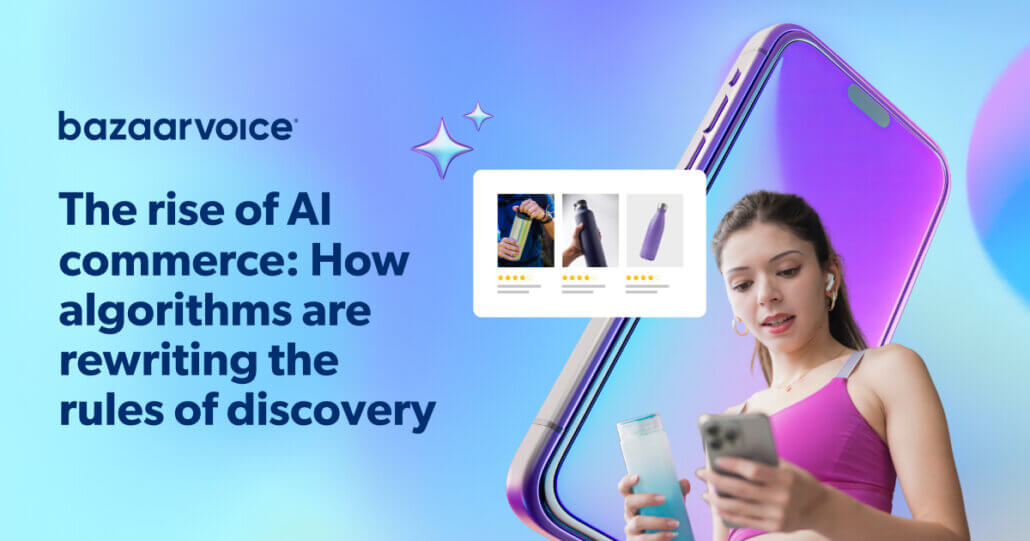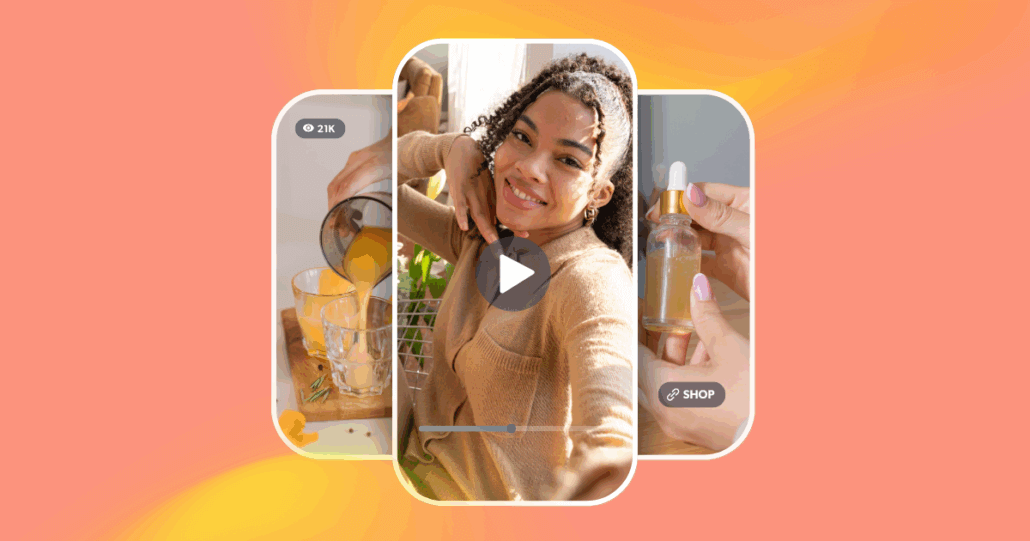July 10, 2025
If there’s one thing that Cannes Lions 2025 made crystal clear, it’s that the future of brand growth is deeply human, tech-driven, and radically authentic. As the commerce landscape evolves, these shifts offer critical direction for how brands engage, build loyalty, and grow, ethically and at scale.
One message cut through the noise: the brands winning hearts, attention, and growth show up as real, relevant, and responsive voices, not just loud. From AI-fueled creative sprints to packed Brand Innovators sessions, it was clear that brands are writing the next marketing chapter based on authentic voices, ethical tech, and shoppable culture.
As longtime champions of community-powered commerce, we didn’t just observe these shifts, we saw our vision reflected. The future is already taking shape at the intersection of content, community, and commerce, and Bazaarvoice is built for it.
Here are the 7 most important trends and insights that stood out to us and what they mean for brands, creators, and commerce leaders as we shape what’s next.
1. AI as a creative partner
AI is officially out of the hype cycle. At Cannes Lions 2025, it became clear that leading brands don’t ask if AI belongs in their workflow anymore, they’re figuring out how to integrate AI marketing strategies more deeply into creative experiences.
Instead of replacing human creativity, AI is becoming a co-pilot, assisting in everything from campaign development to real-time personalization.
Coca-Cola’s partnership with OpenAI and Bain was still a topic of conversation, but this year, the focus was on ethically and efficiently scaling AI-driven insights across every touchpoint.
Think with Google reported how R/GA’s immersive AI‑powered luxury campaign for Moncler increased conversions by 72%, demonstrating that AI is more than just a tool, it’s a catalyst for emotion-laden creativity.
2. Trust trumps targeting
A fundamental shift emerged as consumers became increasingly ad-blind and wary of polished brand messages. What people say about you matters exponentially more than what you say about yourself. Authenticity is not a nice-to-have now, earned trust has emerged as the primary driver of brand performance.
Across the Croisette, panels reinforced that genuine human connection has become the ultimate differentiator in an era of ubiquitous AI-generated content. As Esi Eggleston Bracey, Unilever’s Chief Growth and Marketing Officer, said, “Humanity is not our limitation, it’s our superpower.”
The most successful brands facilitate authentic conversations rather than dominate discourse. This is where creator voices, community content, and honest customer feedback don’t just support campaigns; they become the campaign.
Dove’s ‘Real Beauty Redefined for the AI Era’, a Cannes Media Grand Prix winner, leveraged Pinterest to reprogram beauty algorithms toward authentic representation. By allowing users to define ‘real beauty’ and influencing AI-generated imagery, Dove enforced trust at scale.
Vaseline Verified (Ogilvy Singapore) partnered with creators to bust skincare myths and repurpose their authentic content into ads, an approach that boosted sales by 43% and clinched the Social & Creator Grand Prix.
3. Influencers are out. Co-creators are in.
Cannes 2025 underscored that the future is genuine collaboration, not transactional endorsements. The most successful brands aren’t hiring creators to push products; they invite them to help shape the brand story.
Authentic brand building is about identifying voices who align with your brand values and empowering them to co-create content that feels natural to their audience. These creators become true brand partners, not just paid spokespersons.
This is particularly powerful because these co-creators often bring their own communities into the brand ecosystem. They create content, facilitate conversations, answer questions, and build relationships that traditional advertising could never achieve.
User-generated recipes, authentic product reviews, and real-world usage scenarios carry more weight than any polished campaign ever could. The most future-forward brands are building with their communities, not just marketing to them. Participatory storytelling is how trust is earned, and content stays relevant.
Cannes 2025 confirmed that micro‑creator and consumer collaborations trump traditional influencer endorsements.
4. The rise of shoppable culture
Shoppable content examples 2025 at Cannes Lions blurred the line between inspiration and transaction, turning content into a live shopping moment, reviews into a conversion lever, and community into a loyalty engine.
Ziploc’s ‘Preserved Promos’ won the Creative Commerce Grand Prix: users who snapped expired coupons received discounts on Ziploc items. Partnerships ranged from Amazon to Walmart, turning commerce into play.
KitKat’s ‘Phone Break’ outdoor campaign won the Outdoor Lions. It uses witty visuals to blend product and cultural commentary, creating content designed to pause scrolling and drive desire.
5. Sustainability beyond a campaign and as a creative mandate
One of the most surprising shifts at Cannes Lions 2025 was a profound reckoning with ‘de-growth’, a concept that would have been radical just a few years ago. Sustainability in marketing 2025 is table stakes. But leading brands are going beyond talking about greener packaging. They’re fundamentally reimagining their role in encouraging mindful consumption, circularity, and responsibility.
This represents a seismic shift for an industry traditionally focused on driving demand. Now, the most forward-thinking brands are exploring how to sell less but better, promote repair over replacement, and embed circular economy principles into their core messaging.
The conversation has evolved from “how do we make our products more sustainable?” to “how do we use our platform to encourage more sustainable behavior?” For brands it’s about positioning themselves as trusted facilitators of change while enabling positive environmental impact.
In six months, Natura’s Amazon Greenventory used AI and drones to map 400 km² of rainforest. It partnered with local communities to harvest botanicals sustainably, earning the SDG Grand Prix. This transcended from being just a campaign into a business model that made sustainable value creation profitable and scalable.
6. Building relevance through culture
This year, the most powerful work wasn’t just clever but culturally embedded in authentic and earned ways. The key insight? Brands must actively embed themselves into the culture, not just observe it from the sidelines.
The most impactful campaigns at Cannes demonstrated genuine authenticity from brands that co-create with communities, reflecting societal values and solving real-world problems in culturally relevant ways. It’s about being a trusted facilitator and not an intruder attempting to jump on cultural and viral moments.
Cannes Grand Prix winners exemplified this culture-first creativity, showing how brands can deliver impact and intimacy by becoming integral parts of the cultural fabric rather than external observers trying to insert themselves into conversations.
7. The future is personal and collective
Looking ahead, the next frontier in brand creativity will blend hyper-personalization and contextualization with a sense of shared belonging. The vision is to bring commerce experiences that feel like they were made just for you yet still connect you to a larger story and mission.
According to the Attentive Consumer Trends Report: The State of Personalized Marketing in 2025, “In 2025, 81% of consumers ignore messages that aren’t relevant to them, and 90% say they’d purchase when brands send personalized communications like back‑in‑stock alerts or product suggestions.”
User-generated content for brand trust
Cannes 2025 underlines that earned media is central to the authenticity movement. Consumers are increasingly skeptical of direct brand messaging, peer recommendations, and user-generated content. Real consumer and creator voices have become the most powerful conversion drivers.
Facilitating the development of a library of user-generated content for brand trust building is the smartest and simplest place to start. Think of reviews, ratings, customer Q&A, and social proof as more than supporting elements. They are the foundation upon which brand equity is built.
The brands that succeeded at Cannes understood that their job isn’t to control the narrative but to create the conditions for authentic, positive narratives to emerge and spread organically.
The official Cannes Lions 2025 Wrap-Up Report notes, “Brands must shift from simply saying to showing, demonstrating purpose, building trust through action, and co-creating with the communities they serve.”
This resonates deeply with what we observed across the Croisette: the future of marketing lies at the intersection of authenticity, collaboration, and intelligent creativity.





